MAN IS AN ISLAND
Mauritius by bike – a humbling race through a land of contrasts and contradictions
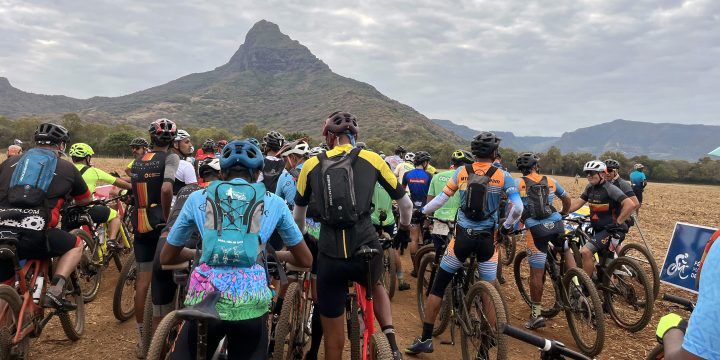
This off-road race was all about contrasts: the cursed steep mountain revealed mind-melting views, the agony of cycling through beach sand was tempered by azure seas, and in light of the remarkable experience, finishing last was a victory.
In the 1950s, as the winds of change started to blow colonial rule from across Africa, the British governor of Mauritius, Sir Hilary Rudolph Robert Blood, called the Indian Ocean island “his pocket handkerchief paradise”. Blood and his ilk would be gone from Mauritius when it gained independence in 1968. But 55 years later, the country remains a rare paradise.
Most South Africans seem only dimly aware of the beautiful island and its Tempest-like history (this really is an island that was uninhabited until the 16th century), even though it’s only a comfortable four-hour flight from Johannesburg. I confess to being among that category.
Thankfully no longer.
My fortune flowed from my pen. Earlier this year, an elegy I had written about the Go2Berg mountain bike race caught the attention of sports writer and entrepreneur Paul Ingpen. If you are part of the mountain bike tribe, you will probably have heard of Ingpen. He is a remarkable forged-in-South-Africa pioneer, who has blended passion for sport with an imaginative social vision.
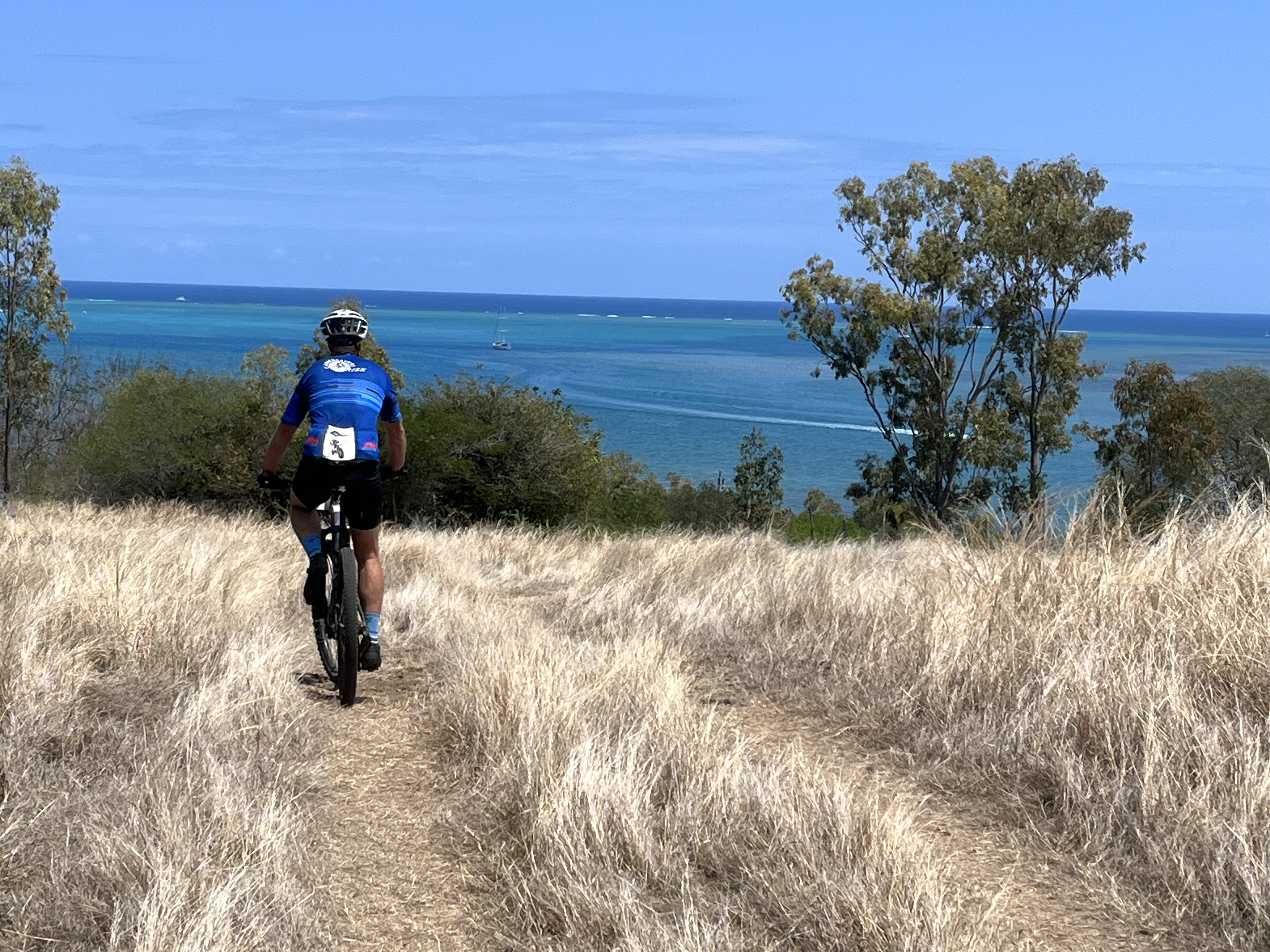
The start of the Colin Mayer Tour. (Photo: Mark Heywood)
In a recent editorial in Mountain Bike, he writes of how “my source of joy and optimism as a Saffa is simply the cool places my bike takes me, and the smiling faces riding alongside me… mountain bikes open up our world in ways our feet and 4x4s can’t. You see, feel and smell so much.”
I concur.
Out of the blue, Ingpen invited me to ride and write about a four-day off-road MTB race in Mauritius, the Colin Mayer Tour. Thus, via an intense and total experience on a bike, began the process of colouring in my knowledge of the island, feeling its geography and wrestling with its topography.
With a sore arse and a doubting mind, it’s the beauty and biodiversity that keep you pedalling when your mind and body are in revolt.
The eighth edition of the tour was held this year. The race is named after a local riding hero, who was killed in a freak accident with another rider in 2009. Each of the four days starts and finishes from a race village in a natural basin close to the southern town of Flic en Flac. On the one side is the Indian Ocean, collared by a coral reef. On the other loom some of Mauritius’ highest mountains, including the Piton de la Petite Rivière Noire and Le Morne, a rugged mountain outcrop that juts out into the sea.
The race is about the intimacy of the long-distance rider with the land, its contours and climbs, the sea; it’s about how small you realise you are against nature; it’s the thirst you build; the exhaustion and exhilaration; the equilibrium you need to establish between doubting brain and willing-to-try body.
But I’m getting ahead of myself.
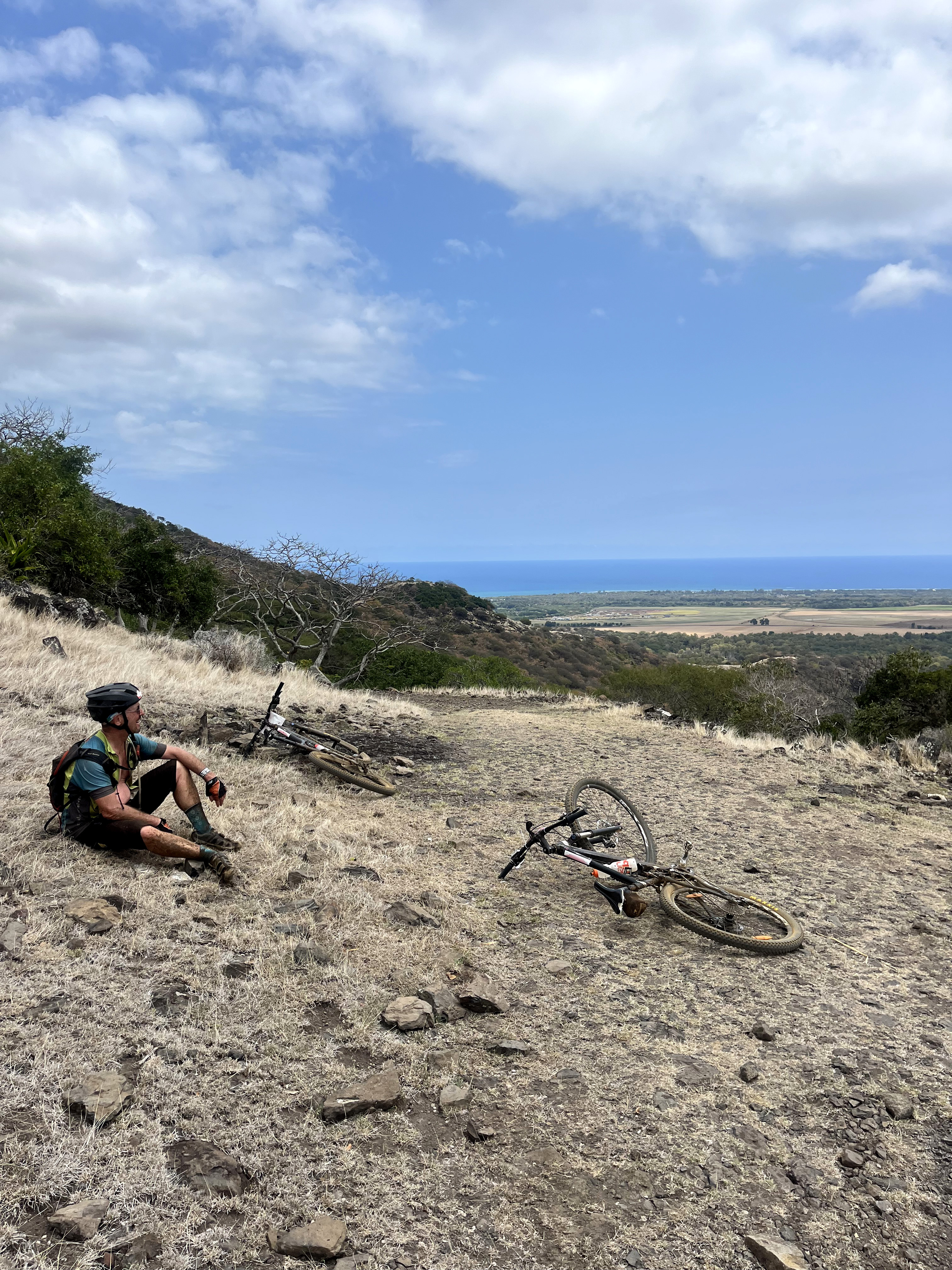
Mark Heywood, mountain bikes and the Indian Ocean beckoning. (Photos: Mark Heywood)
Blood, sweat, tears and triumph
This year, nearly 300 riders from eight countries participated, including 28 South Africans and 70 from the small island of Reunion. Our ages spanned a 50-year difference: from South Africa’s early-twenties pro riders – Tristan Nortje and Franko van Zyl (who won the race) – to several people in their seventies.
Each day, as we assembled at the start line, I wondered if I had finally overestimated my capabilities. Whereas I brought mainly resolve and mind muscle, these men and women were sinewed, technically competent and riding serious bikes.
I was right to worry. If you are what is politely described as a “social rider”, it is a tough race. Over four days (“stages” in MTB parlance) you will cover 180km, ascending close to 1,000m a day, and traverse indigenous forests, cane fields (85% of the arable land is covered in sugar cane), volcanic mountains, rivers and beaches. The route is clearly marked, but the ground you ride over is hard and unforgiving. But your blood, sweat and tears (I shed a little of each) will be rewarded with views to die for and a sense of accomplishment as you cross the finish line each day.
How do you experience Mauritius’ beauty, which combines the bright Boucle d’Oreille (the national flower), clusters of banyan trees, mangrove forests and an occasional Mauritian ebony tree? For me it was about constant contrast: between the hard black volcanic rock, sometimes rising hundreds of metres in sheer faces, and the biodiversity of the flora; the demanding push of the bike up steep hills and the view of a turquoise sea that greets you at the top; unexpected encounters with mountain hamlets and roadside Hindu shrines.
I came last (bar about 20 “did-not-finishes”). But for me that’s a victory. With a sore arse and a doubting mind, it’s the beauty and biodiversity that keep you pedalling when your mind and body are in revolt. I have come to learn that you never feel more alive than when you are close to the boundaries of what your body can do, and what your mind gives permission for.
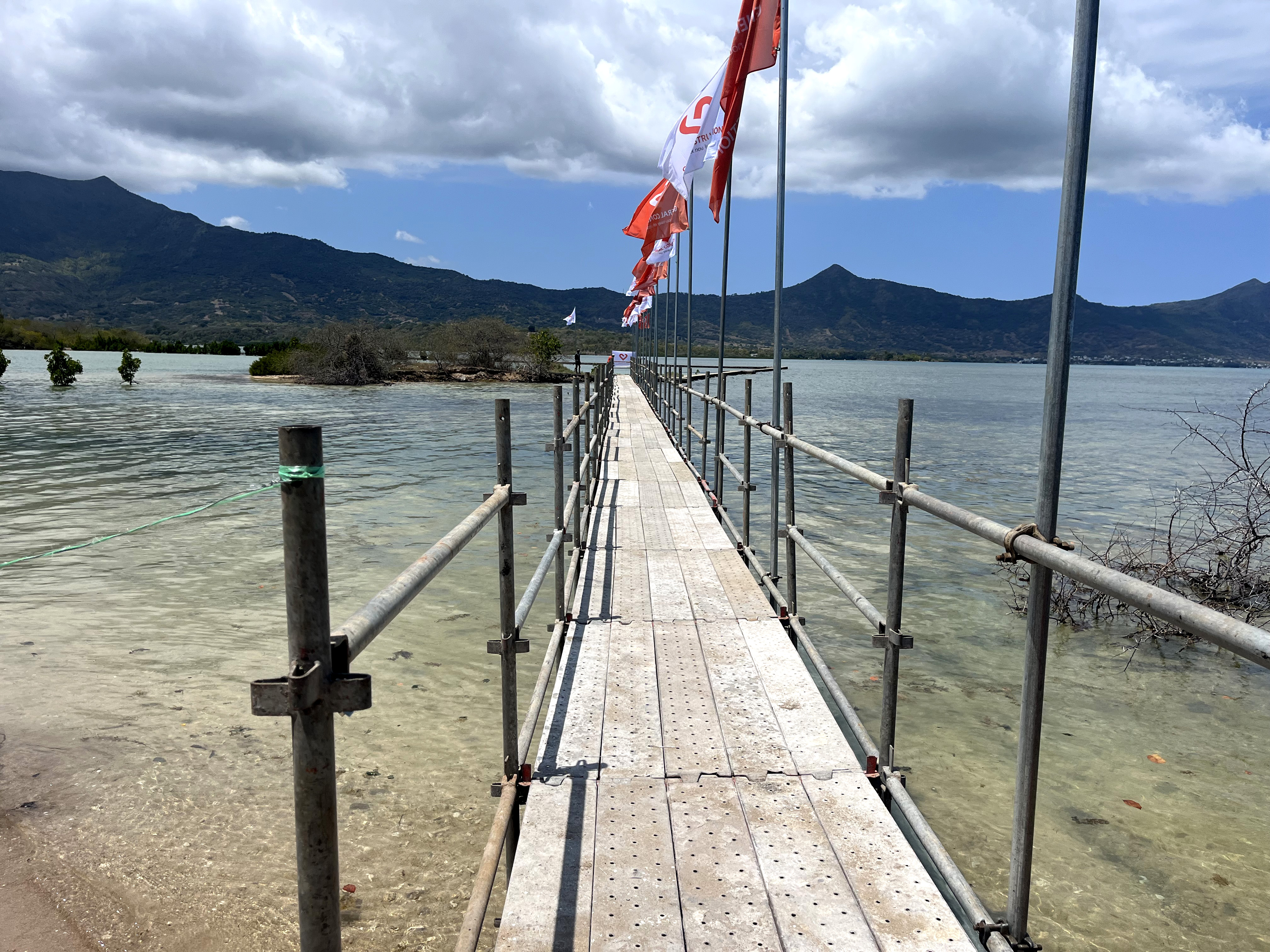
Part of the route takes riders over a causeway and bridge crossing the Grande Riviere Noire . (Photo: Mark Heywood)
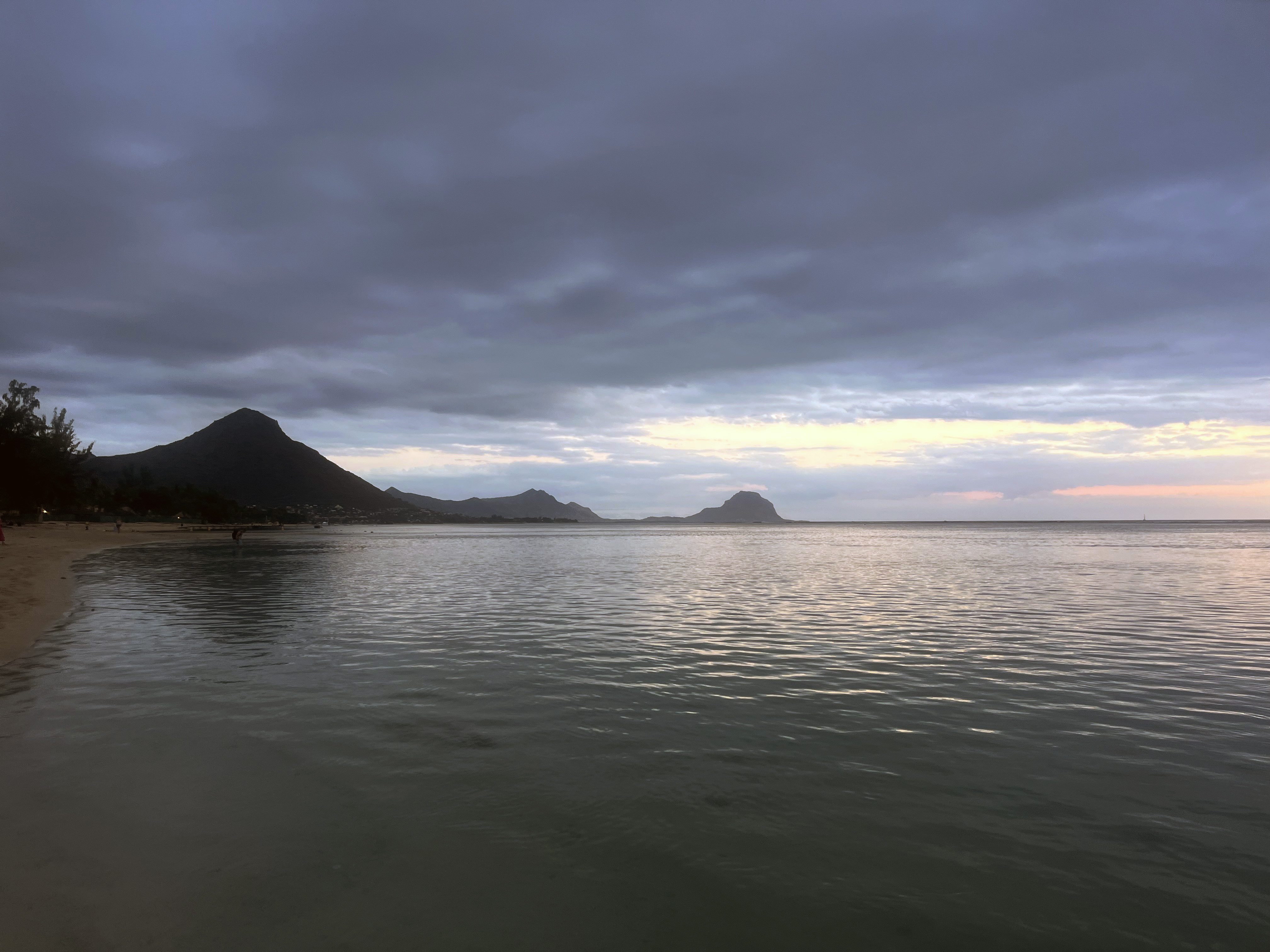
Evening view from the La Pirogue hotel, Flic en Flak, with Le Morne, a Unesco heritage site, jutting into the sea in the distance. (Photo: Mark Heywood)
Contested island
The Colin Meyer Tour is mainly an encounter with the elements, but it is also a race that locates its vision in the identity and imagination of the island’s people. In the era of ecotourism, we owe a duty of care to those who inhabit the beautiful places we visit.
So, some words on Mauritian society.
A week before travelling to Mauritius I bought the latest book by British legal historian Philippe Sands, The Last Colony: A Tale of Exile, Justice and Britain’s Colonial Legacy without knowing what it was about. By pure serendipity (it does happen) its subject was Mauritius, particularly the campaign to remedy Britain’s dismembering of the Chagos Islands from Mauritius’ territory during independence.
From the book, and from conversations with hotel staff and taxi drivers, I learnt how Mauritius’ history is as tortured as its biodiversity. For five centuries it was an island fought over by three colonial powers, and populated with the slaves from India and Africa they imported to extract its riches. For a brief period known as the Maroon Republic, slaves even appeared to rule the island. When slavery was officially ended, it continued for another 30 years in Mauritius; its tragedy is best epitomised by the legend of the massacre of slaves who took refuge on the mountain of La Morne, today a Unesco heritage site.
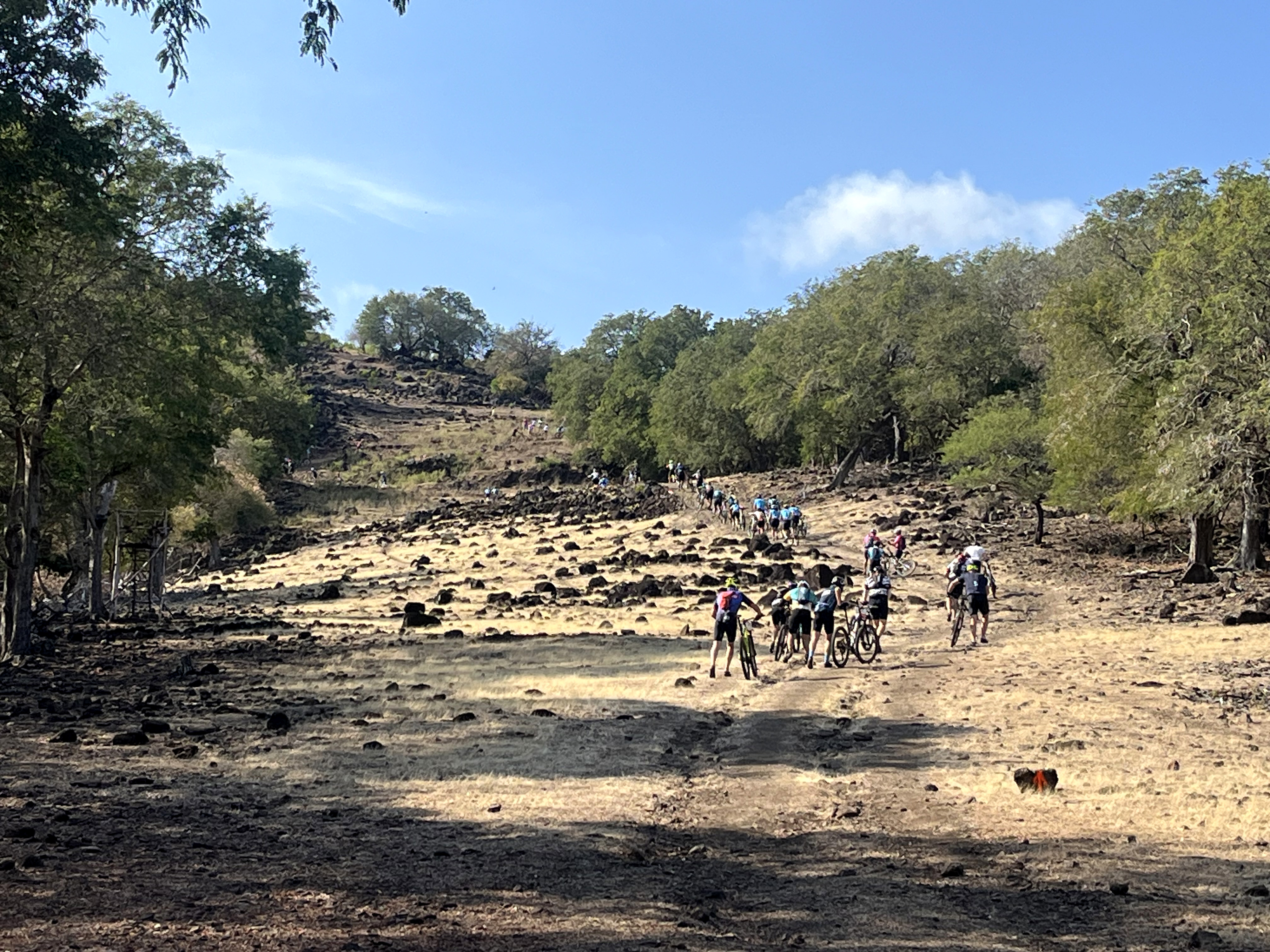
Arduous mountain climbs that had even the strongest of cyclists pushing their bikes. (Photo: Mark Heywood)
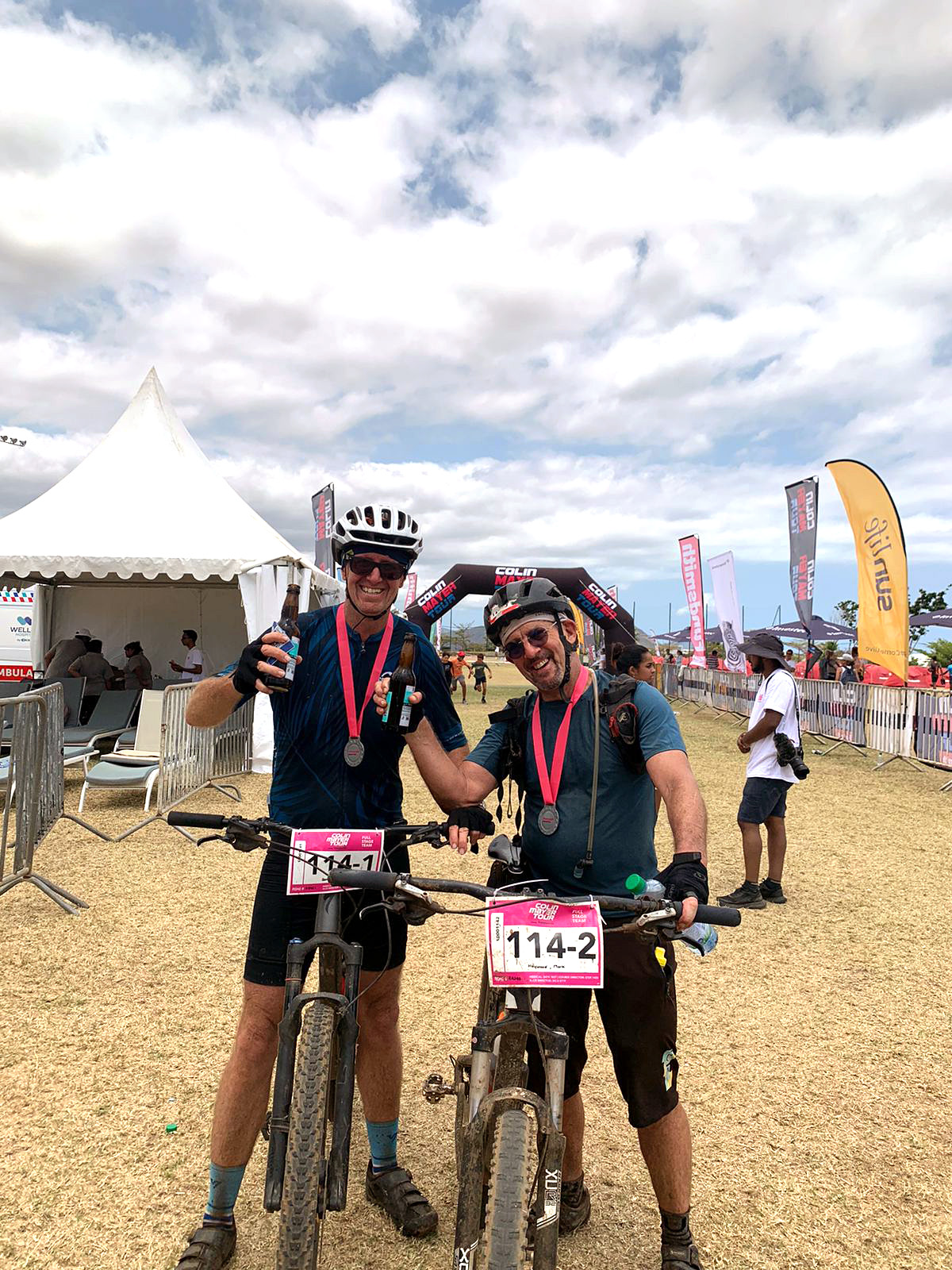
Mark Heywood and riding partner Mark Bates, team Maverick Citizens, at the finishing line after 15 hours and 33 minutes of riding. (Photo: Supplied)
It’s an island of contradictions. Although from 1814 it was an English colony, its main language is Creole, a derivative of French. It’s a place of many ethnicities and faiths with high levels of tolerance. As you drive through the island’s narrow streets, temples, mosques and churches nestle cheek by jowl.
Read more in Daily Maverick: A rum-assisted explanation of the Mauritian miracle
The Hindu temple at Grand Bassin, built on the edge of a sacred volcanic lake, is a global site of worship for Hindus. Once a year, during the Maha Shivaratri festival, people embark on a pilgrimage and walk miles and miles to the temple from all corners of the island.
It has a relatively functioning welfare state (with free public transport, education and health), but with epidemic corruption and few job opportunities for the young, many emigrate. People of Indian origin make up 67% of the population, but other than the small political elite, the wealth of the country is in the hands of expatriate South Africans, French and Chinese.
Despite all these challenges and contradictions, my mountain bike and I encountered a land where there is still a sense of social cohesion, a place where – with better stewardship – heritage, history and nature can join forces to create a society that benefits all who live in it. Whether you are a pro rider, a social rider or something in between the CMT is a gateway to an experience you will not forget. DM
To find out more about the Colin Mayer Tour visit colinmayertour.com. To learn more about the joys of mountain biking read Mountain Bike South Africa or follow Paul Ingpen on Instagram @paulingpen.
This story first appeared in our weekly Daily Maverick 168 newspaper, which is available countrywide for R29.
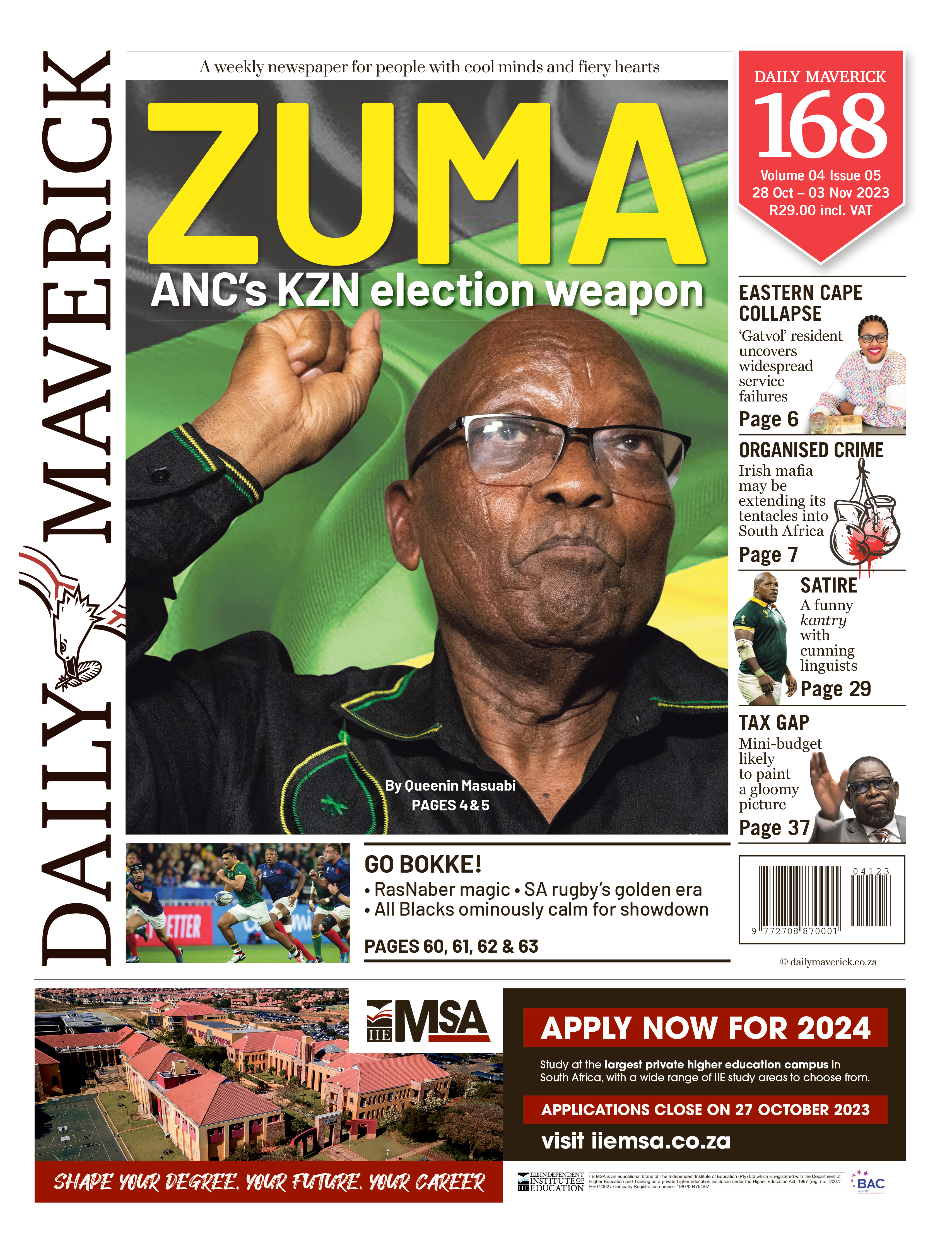




















Comments - Please login in order to comment.